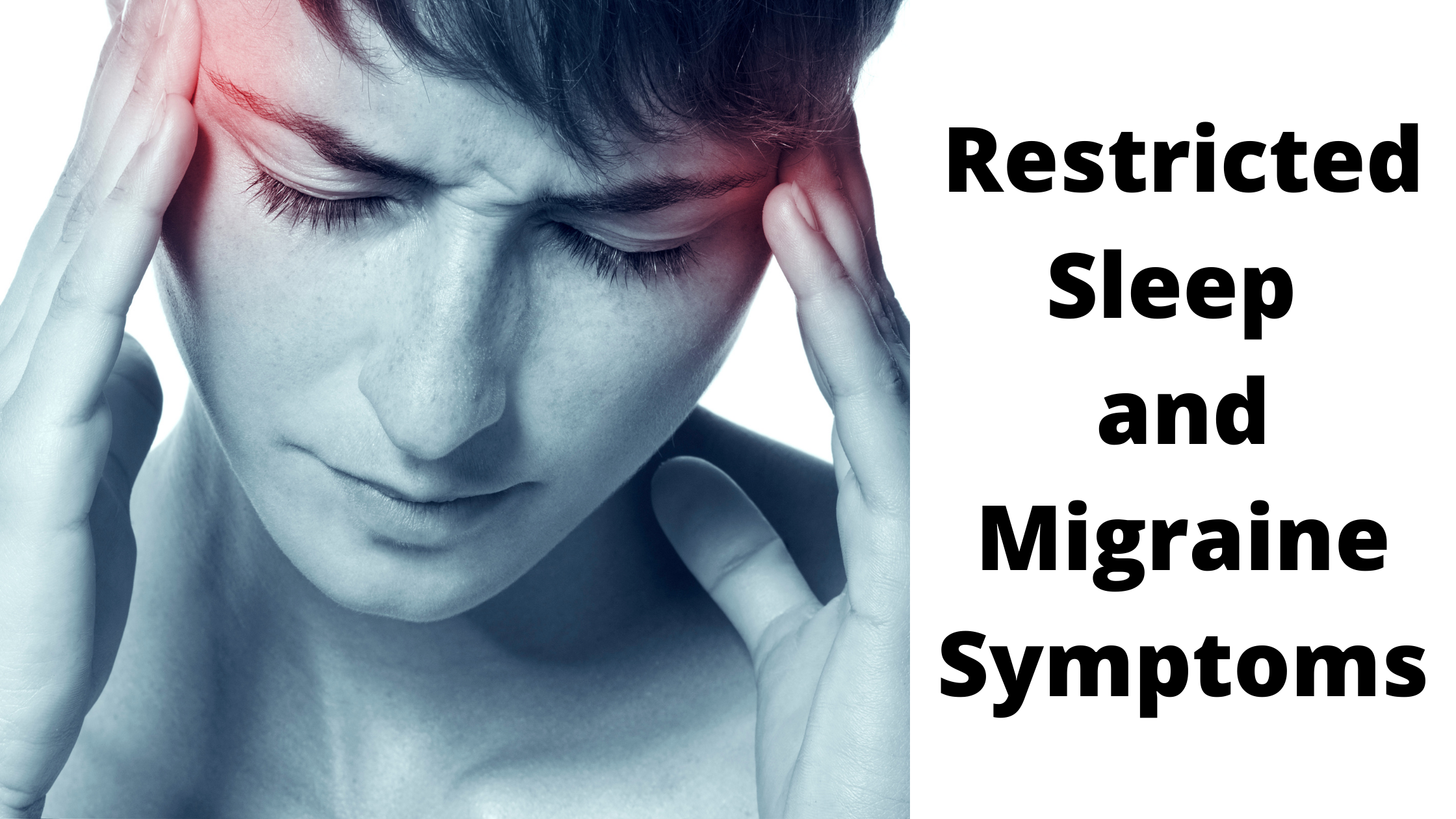
Migraines affect about 15% of the adult population and is the leading cause of living disability in those below 50 years old. Although they seem like "just another headache" migraines are much more severe and persistent than the average headache. They also come with some distinct characteristics and require specific treatments for relief.
Migraines can be debilitating and cause lost work wages as well as decreased quality of life. There are many things that contribute to migraines such as genetics, stress, hormones, etc. But one common link to migraines is sleep, or lack thereof. Continue reading to find out how restricted sleep can worsen migraine symptoms.
What is a migraine?
A migraine is a severe headache. It often is accompanied with an aura (or warning) - such as flashing lights, changes in vision or hearing, etc. - but doesn't have to be. It primarily affects women and can be a throbbing or pulsing sensation, often on one side of the head.
It differs from an average headache by accompanying nausea, vomiting, and extreme sensitivity to light and sound. These attacks can last for hours to days and the pain can be so severe that it interferes with daily activities.
Migraine Symptoms
Migraines can progress through four stages. The first is the prodrome, the second is the aura, the third is the attack and the final stage is the post-dome. However, experiencing all four stages is not required.
A prodrome is essentially a warning that a migraine is coming. It happens one or two days before a migraine and can be characterized by small changes such as constipation, mood changes, food cravings, neck stiffness, increased urination, fluid retention, and frequent yawning.
The aura might happen before or during migraines. They are reversible symptoms of the nervous system, and are mostly visual, but can include other sensories. The symptoms begin gradually and can last anywhere from a few minutes to an hour. Visual phenomena, vision loss, pins and needles or numbness in various parts of the body and difficulty speaking are all possibilities.
The attack happens anywhere from 4-72 hours if untreated. Their frequency varies from person to person and can happen rarely or several times a month. Signs of an attack include pain on one side of the head, throbbing or pulsing, sensitivity to sensory information, and nausea and vomiting.
The post-drome takes place after the migraine attack and can leave you feeling drained, confused and absolutely done for the day. Some people feel euphoric but sudden head movement can induce sudden pain again.
Migraine Symptoms and Sleep Restriction
Sleep is a very common disturbance for those with migraines. Many have trouble going to sleep while others use sleep as a way to avoid dealing with the pain of a migraine. There is also decreased sleep quality in those with migraines compared to those without, as well as increased insomnia-like sleep patterns. This means that individuals with migraines have a harder time falling asleep.
Sleep restriction is about 50% of sleep for 2 nights can lead to insufficient sleep. In those without migraines, sleep deprivation may alter cortical inhibitory and facilitatory systems which can induce pain sensitivity. Essentially, sleep deprivation decreases your brain's ability to buffer the pain and reduce its severity.
Those with migraines experience increased pain sensitivity and may be increased with increased sleep pressure which is caused by an increase need to sleep. However, those with migraines often have sleep troubles which is the opposite of what their bodies need. In order to explain this, researchers placed a transcranial magnetic stimulation to analyze what seems to be causing sleep problems in those with migraines.
The Research
All subjects were between 18 and 65 and could not use any medication before or during the study. They found that sleep restriction had the opposite effect on cortical silent period duration in interictal migraines and controls. The cortical silent period is the interruption of voluntary muscle contraction by stimulating the contralateral motor cortex. With sleep restriction, this period was reduced. More severe symptoms were associated with shorter cortical silent period duration for several variables including the frequency of migraines, severity of sensory sensitivities, and the yawning.
There was a significant decrease in this period after sleep restrictions, and it was more pronounced for patients with migraines with aura.
This period is mediated by an inhibitory neurotransmitter called GABA-B and could be modulated by GABA-A.
This research is advanced neuroscience, but essentially, when individuals do not receive enough sleep, they are unable to experience the disruption between sensations in their body and the reception of that feeling by the brain. This can increase pain sensitivity and pain duration.
The Bottom Line
This article was very clinical, but the overall point is that a lack of sleep can worsen the symptoms for those with migraines. If you would like to reduce some of your pain symptoms, improving your sleep may be a great place to start.
If you are having trouble with your sleep and would like assistance, please click the orange button below to take our free online sleep test.
https://www.pharmacytimes.com/view/study-restricted-sleep-increases-some-symptoms-of-migraine

